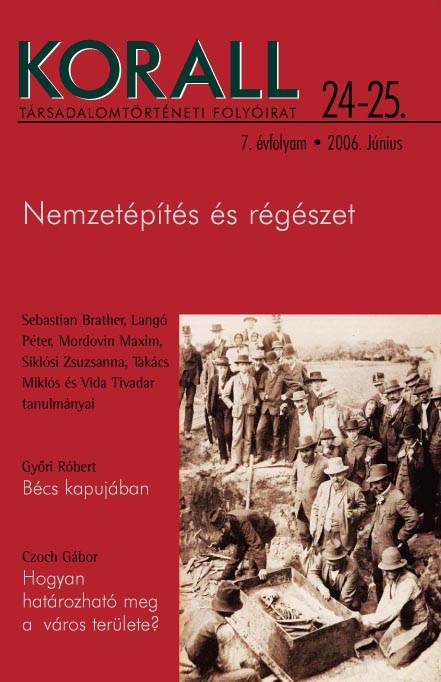A nemzetépítés jegyében megfogalmazott elvárások Kutatási célok az észak-balkáni államok középkori régészetében
Expectations of nation building.Research objectives in the medieval archaeology of the statesof the Northern-Balkans
Author(s): Miklós TakácsSubject(s): History
Published by: KORALL Társadalomtörténeti Egyesület
Summary/Abstract: The paper intends to provide a brief overview of the objectives and expectations characteristic of the medieval archaeology of the states of the Northern-Balkansduring the last hundred and fi fty years. According to our fi ndings, the followingcommon traits may be discovered as regards our subject:1. In all countries of the region, medieval archaeology evolved within theprocess of the acquisition of national independence, the process of “nationbuilding”. It was a part of the intellectual struggle that was the motor of national independence. The circumstances of this evolutions explain why the archaeologists of the various states of the Northern-Balkans had to and have to fi nd presetanswers to certain questions, answer, which coincide with the national-romanticist theories of historiography in the given country.2. In the area under examination, medieval archaeology is distinct to thedifferent states. This segmentation is so deep, that the various independent,“national” researches focus on the past of the given nation exclusively, along thelines of ad hoc territoriality, a concept formulated by László Szakra in anotherconcept, but very fi tting to our subject as well.3. Due to society expectations toward medieval archaeology, two questionshave become prominent in research. These two research topics are: the ethnogenesisof the given people – to provide the ground for the imaginary “rights ofthe fi rst settlers” – and the material culture of the given people during the middle-ages to illustrate the “glory of old”.4. The communists’ rise to power in the Northern-Balkans after 1945 hadonly a partial and temporary eff ect on these priorities. The return to traditional,“national” questions within the archeological researches of the region had startedas early as the 1950’s. In the case of the former Yugoslavia and Albania, thereformulation of the national aspect was strengthened by the fact that the communistnomenclatures of these two states wished to rid themselves from Moscow’s guardianship.
Journal: Korall - Társadalomtörténeti folyóirat
- Issue Year: 2006
- Issue No: 24-25
- Page Range: 163-202
- Page Count: 40
- Language: Hungarian

